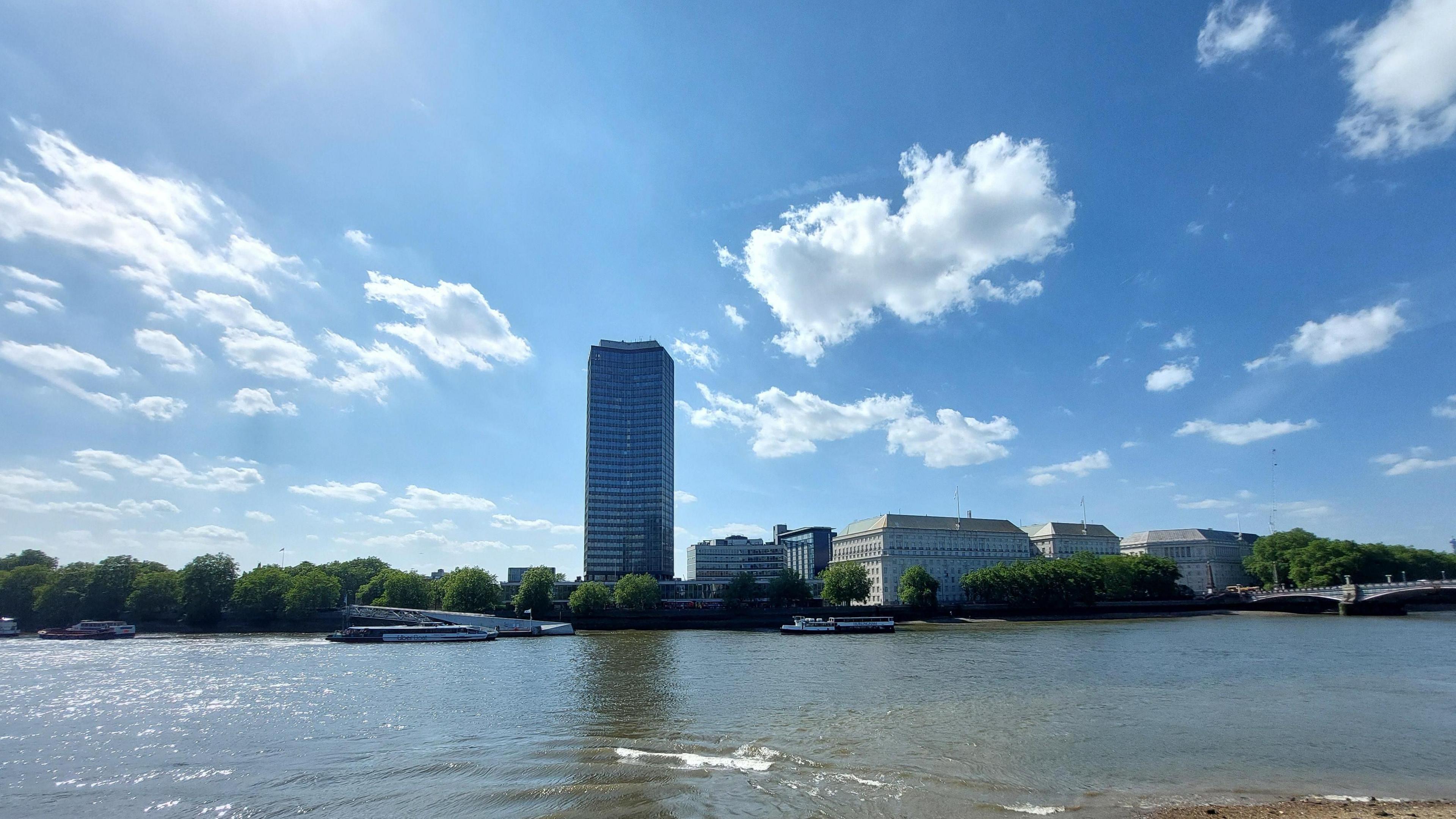Will the UK's warm spring lead to a hot summer?

London was one of the warmest spots in the first weekend of June with a high of 24C
At a glance
Provisional Met Office data shows it was the warmest May - and warmest spring - on record
Night time temperatures were particularly high
Cool weather is expected to develop in most places this week
- Published
The first weekend of meteorological summer brought temperatures above 24C in parts of the UK and for many places there was plenty of sunshine.
It follows a spring which - perhaps surprisingly - was provisionally the warmest on record but also one of the wettest.
However, if you are expecting it to keep getting warmer, this week might come as a surprise with cool winds bringing below-average temperatures for some.
How bad was spring really?
Provisional Met Office statistics show that spring 2024 - which covers the months of March, April and May - was the warmest on record with a mean temperature of 9.37C, up from a previous high of 9.12C in 2017.
May's warmth was in part because of above average temperatures in the north of the UK with Scotland exceeding its previous record by 1.6C.
These temperature records go back to 1884.
This might leave you scratching your head after a season in which sunshine seemed rare and rain was a frequent visitor. Indeed, it was an unusually dull spring and the sixth wettest on record.
Edinburgh had its wettest May on record with more than three times its average monthly rainfall
It is important to bear in mind that warmth doesn't always mean dry, clear weather and this is particularly true at night.
Delving deeper into the statistics we find that, while daytime temperatures this spring came in as the ninth highest overall, night time minimum temperatures were the highest on record by a big margin.
In fact the previous record was broken by more than 0.5C - significant in climate terms.
This stands to reason. The coolest nights tend to be the ones with clear skies and little cloud cover. On overcast nights the cloud essentially acts like a blanket holding temperatures up.
The start of June brought beach weather at Ballycastle, Co. Antrim
Early summer prospects
The beginning of June marks the start of meteorological summer. And the first weekend of the month delivered in terms of warmth and sunshine thanks to high pressure.
But this certainly isn't the start of a heatwave.
As the area of high pressure retreats and the jet stream dips southwards, cooler air is set to spread across the country this week with temperatures dropping below the seasonal average in places, especially in the north of the UK.
Showers will also feature, some of which will be heavy and possibly even wintry over the highest mountains in Scotland - by no means unprecedented for June.
But we are not expecting a complete washout. There will be lengthy dry spells, especially in the south of the UK. And while it might be cool in the shade, the Sun is strong enough at this time of year that it will feel reasonably warm in any brighter interludes.
A dip in the jet stream will bring unseasonably cool weather this week
Will warmer weather return?
The weather is forecast to remain rather cool and showery for much of the first half of June.
Forecasting beyond that timescale is fraught with difficulty. Tiny changes in the atmosphere now can be magnified over days and weeks to bring massively different outcomes.
At the moment it does seem fairly likely that summer will be warmer than average overall, but rain is also expected to feature.
If you are making plans further ahead it is worth staying up to date with our monthly outlook and checking the forecast closer to the time on the 大象传媒 Weather app.
Is this climate change?
As the world warms overall we will continue to see extremes of both warm and cold weather.
However unusually warm weather is happening more often while unusually cold weather is becoming less common.
A look at the spring weather statistics reflects that trend.
Eight of the 10 warmest springs on record have occurred since the year 2000 - but just one of the 10 coldest springs has happened this century.
Wetter weather is also a likely symptom of climate change. Warmer air is able to hold more moisture making heavy rainfall more likely.
This all ties in with broader themes after 2023 brought the UK its second warmest year, with record temperatures around the world as a whole.
- Published31 May
- Published31 May